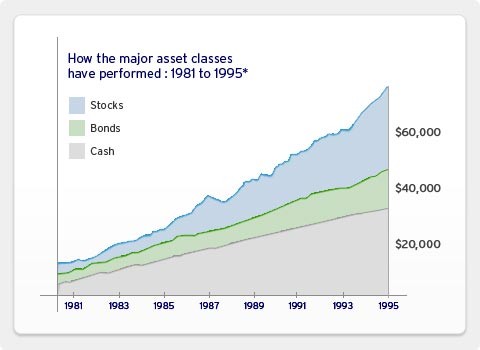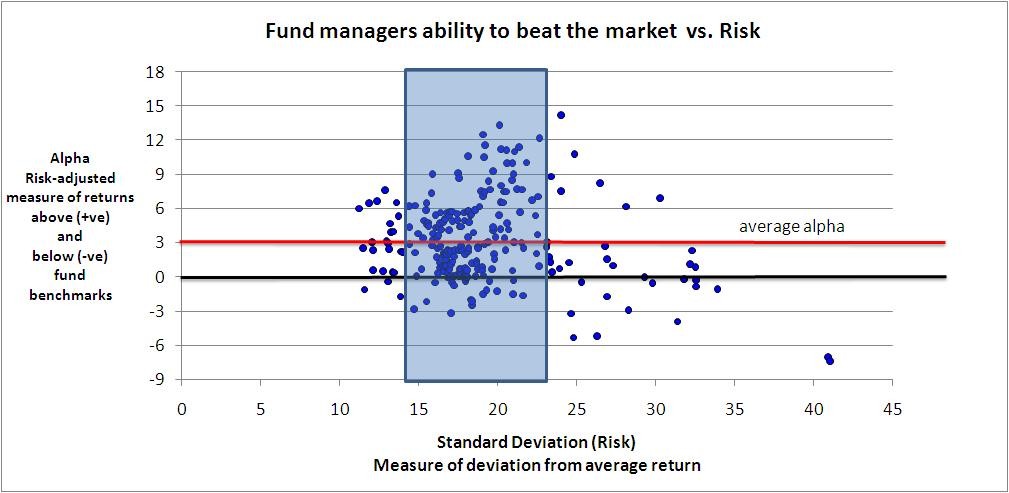The Risks and Rewards of Investing in Mutual Funds
Post on: 9 Май, 2015 No Comment

MONEY MANAGEMENT
From the Virginia Society of Certified Public Accountants - Presented by Dean Knepper, CPA, CFP
THE RISKS AND REWARDS OF INVESTING IN MUTUAL FUNDS
(September 23, 2005) If the markets uncertainty has made you gun-shy about investing, consider mutual funds. When you buy into a mutual fund, your money is pooled with money from many other investors with similar or mutual goals, explains the Virginia Society of CPAs (VSCPA). Professional money managers invest the money in stocks, bonds and other securities. Each investor owns shares in the fund and participates proportionally in the funds gains or losses. Thus, you reduce the possibility of a significant loss from an individual holding. To help you better understand the risks and rewards of investing in mutual funds, the VSCPA offers the following key facts.
Mutual funds are not guaranteed or insured by the FDIC or any government agency. They are, however, regulated by the federal government through the Securities and Exchange Commission (SEC).
Types of funds
Most mutual funds fall into one of three main categories: stock funds (also called equity funds), bond funds and money market funds investing in short-term securities. Although money market funds maintain a stable value per share (usually $1) and are well-suited for investments requiring liquidity, their similarity to a bank savings account should not be confused with an FDIC-insured account. All mutual funds are variations of these three basic asset classes. Within these three primary categories are thousands of funds with different strategies aimed at meeting the investment objectives of fund holders.
Minimum investment
Most funds require a minimum investment of anywhere between $250 to $2500, although some funds enable you to make investments for even less than $250 and others require a higher amount to open an account.
The price that investors pay for mutual fund shares is the funds per share net asset value (NAV) plus any shareholder fees, if any, imposed at the time of purchase. The NAV fluctuates every day as fund holdings and the share prices change. Fund share prices appear in the financial pages of most major newspapers.
Generating income
You can earn money from your mutual fund investment in three ways. Income is earned from the dividends and/or interest the fund earns on the investments in its portfolio. If the fund sells securities that have increased in price, the fund has a capital gain, which is typically passed on to investors in a distribution. If fund holdings increase in price, the shares increase in value. You can then sell your mutual fund shares for a profit. Of course, a mutual fund can also drop in value.
Mutual fund fees
All mutual funds have costs that lower the funds investment returns. Operating expenses cover the cost of running the fund, including management fees, distribution fees and other expenses. Some funds impose fees or sales charges when investors buy shares. This fee is referred to as a front-end load. A fund that charges a fee when you sell shares has a back-end load. A no-load fund sells its shares without a fee or sales charge, but even no-load funds charge for operating expenses.
Relying on past performance
A funds past performance is not a reliable indicator of future performance. Dont use this solely as the basis for an investment decision.
Buying and selling funds

Mutual funds are easy to buy and sell. You can purchase shares directly from the fund company or through a third party, such as a broker or a bank.
Fund management
Investment advisors who are registered with the SEC manage the portfolios of mutual funds.
Overall advantages
The key advantage to investing in a mutual fund is diversity. Instead of owning individual stocks or bonds, investing in a mutual fund spreads risk across a broader portfolio of investments. Other advantages include professional management, simplicity and convenience. Investors also have easy access to their money, making a mutual fund investment a liquid asset.
Getting the facts about funds
All funds offer a prospectus that should be read carefully before investing.
If you have any questions about how mutual funds fit into your overall financial plan, talk to a CPA [and a CERTIFIED FINANCIAL PLANNER professional]. He or she can help you determine the best type of fund for achieving your personal financial objectives.
The Virginia Society of CPAs is the leading professional association dedicated to enhancing the success of all CPAs and their profession by communicating information and vision, promoting professionalism, and advocating members interests. Founded in 1909, the Society has nearly 8,000 members who work in public accounting, industry, government and education. This Money Management column and other financial news articles can be found in the Press Room on the VSCPA Web site at www.vscpa.com .














